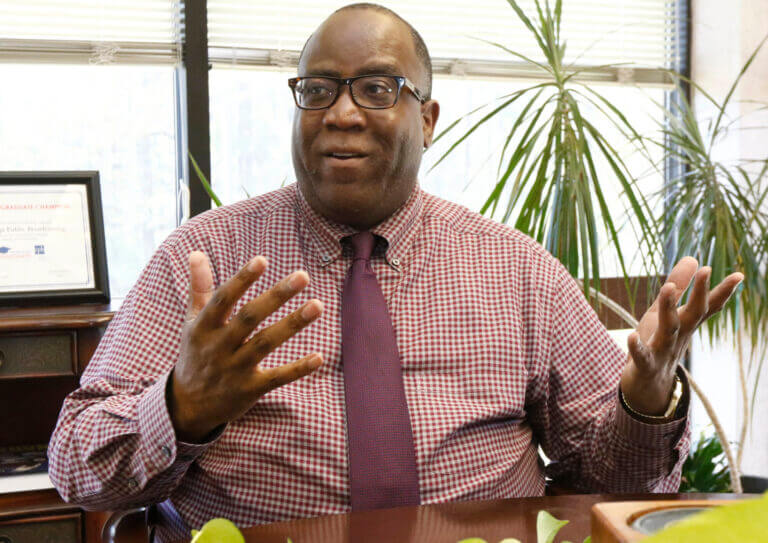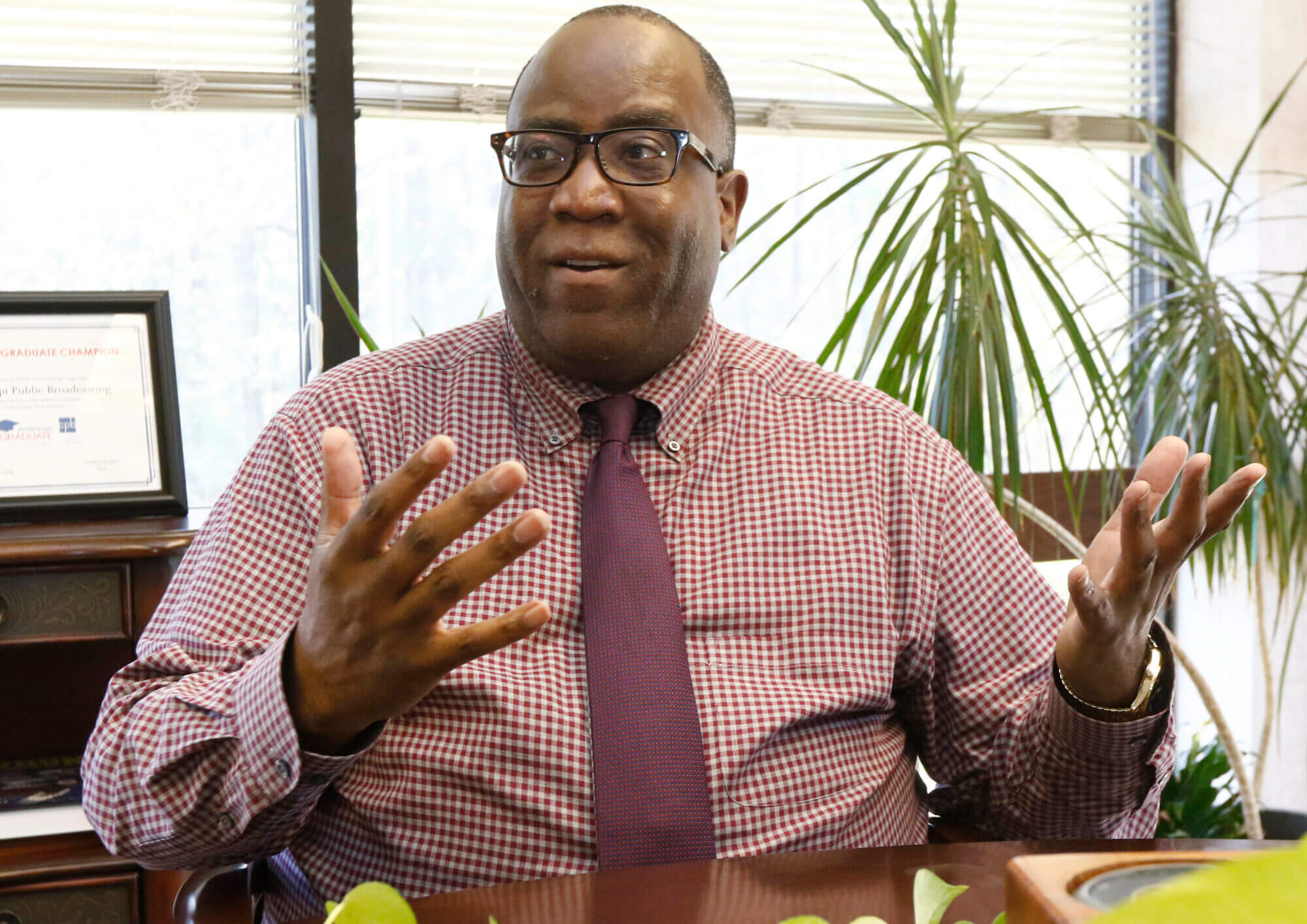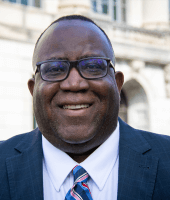

Editor’s note: This essay is part of Mississippi Today Ideas, a platform for thoughtful Mississippians to share fact-based ideas about our state’s past, present and future. You can read more about the section here.
I was 7 years old when those funny-looking characters appeared on our black-and-white TV set. We lived in what the Tupelo city folk considered the country. If there was such a thing as cable, we surely didn’t know anything about it. The only static-free channel on our dial was the NBC affiliate, and that’s because the station on Beech Springs Road was barely a mile from our house. Suddenly, there was this new station – PBS.
Those funny-looking characters were from this new show called “Sesame Street,” and they had me hooked from the first day. Of course, I was happy to have another TV choice. But this one was different. Skillfully included in the humorous scenes with Ernie and Bert, Oscar the Grouch, Cookie Monster and Big Bird were educational messages that proved educationally life-changing for my family and me.
PBS aired “Sesame Street” – the same PBS that helped teach scores of children in our nation, including me, to read. And it’s the same PBS and member stations that just had their two-year forward-funding appropriation yanked by a $9 billion GOP-led rescission bill that finally succeeded in doing what “Sesame Street” teaches against – bullying.

After a long media career, including more than a decade as editor of The Clarion-Ledger, I spent another decade as executive director of Mississippi Public Broadcasting. It was one of my proudest moments for a kid from Saltillo, a child who came from a family of sharecroppers, to occupy the top seat in public broadcasting in my home state and to ultimately get elected to PBS’s national board of directors.
A kid who admired public media became an executive who ran a statewide operation and helped shape policy nationally. It felt like a dream.
For those who care as much as I do about public media, it is unfathomable, inconceivable and plain dumb – choose your adjective – that both PBS and NPR stations are being picked on, possibly dismantled. And for what? Their financial impact on the multi-trillion-dollar federal budget is minuscule. The inexplicable action carried out by the GOP majority has hurt me deeply. While Republican members run home on recess to avoid further questions about Jeffrey Epstein, my mind can’t get away from the inevitable obliteration of content from local stations that looms.
PBS and NPR are certainly weakened by the passage of the recission, but it will be the rural stations in rural towns without wealthy donors that will feel the most pain. It is a foregone conclusion that some stations already barely getting by will close.
One industry executive described the cuts as “catastrophic, devastating, unnecessary and mean-spirited.” Several stations have already had layoffs and there will be more.
The Corporation for Public Broadcasting, which announced Aug. 1 that it will begin shutting down in September, has been the congressional arm doling out funds to stations since 1967. For years, despite the shortsightedness of some members of Congress, CPB, with the assistance of affinity groups, fought off funding threats and delivered to the 1,500 stations federal dollars that were their lifeline.
Not this time.
The recent action to claw back the $1.1 billion public broadcasting receives over two years is a blow that most likely will place the industry as we know it in an unrecoverable position.
The public media system and local stations have led the way in delivering some of the country’s best programming. PBS, for example, was among the first to bring to viewers travel shows, DIY content, cooking shows featuring cultural icons like the great Julia Child. There’s also Bob Ross, with his soothing voice, who made us all believe that we, too, could paint beautiful landscapes.
The children’s programming, which my grandchildren faithfully watch, cannot be matched by those with commercial interests. It provides a safe place for children, which is not always the case with the others.
NPR frequently sets the agenda for the news of the day – often scooping better-financed media companies – with hosts and producers who have a knack for securing interviews with top newsmakers. Their aggressive reporting has always struck a nerve with thin-skinned politicians. As executive director of MPB, it was NPR that kept my phone ringing with lawmakers threatening to pull funding.
Public broadcasting will survive in some form. It has been wounded, but it has not been silenced. I would not be truthful, however, if I didn’t believe that its strong voice has been reduced to a whisper.
The American people have supported public broadcasting with their viewership and donations, the perfect public-private partnership. But I don’t believe small-town America can keep up. Some larger stations will struggle, as well.
So many people in my circle of friends have given their entire careers to public media. They won’t give up that easily. But they’ve been dealt a bad hand, a setback that has every station accountant working overtime to save as many people as they can.
What do I predict?
Expect to see mostly national programming and fewer local productions. Expect to see talented radio and TV professionals in the job market. But don’t expect to see public media and the ingenuity of its people give up. They will never quit.
Ronnie Agnew was named general manager of New Jersey Advance Media in 2022. He is a Mississippi native who has been in the media industry for more than 40 years. Agnew is a former executive editor of The Clarion-Ledger and former executive director of Mississippi Public Broadcasting. While editor of The Clarion-Ledger, Agnew received four President’s Rings, honoring editors in the Gannett Co. for exemplary performance. He also was honored with the Silver Em from the University of Mississippi. He is also a member of the University of Southern Mississippi Journalism Hall of Fame.
- Former Hinds sheriff Marshand Crisler’s bribery conviction stands - March 4, 2026
- National Rifle Association successfully lobbies against bill taking away guns from abusers - March 4, 2026
- Data center proposed for Clinton - March 4, 2026